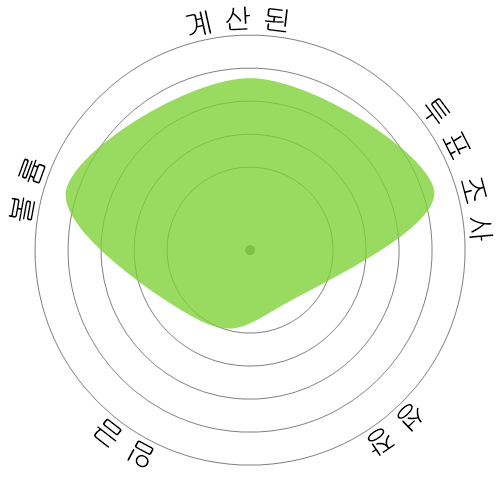면허가 있는 실습 간호사 및 면허가 있는 직업 간호사




사람들이 또한 조회했습니다
계산된 자동화 위험
저위험 (21-40%): 이 수준의 직업은 기술적인 능력과 인간 중심의 기술을 모두 요구하기 때문에 자동화 위험이 제한적입니다.
이 점수가 무엇인지, 그리고 어떻게 계산되는지에 대한 자세한 정보는 여기에 있습니다.
사용자 설문조사
우리의 방문자들은 이 직업이 자동화될 가능성이 낮다고 투표했습니다. 이 평가는 계산된 자동화 위험 수준에 의해 더욱 지지받고 있으며, 이는 자동화의 24% 확률을 추정합니다.
자동화의 위험성에 대해 어떻게 생각하십니까?
면허가 있는 실습 간호사 및 면허가 있는 직업 간호사이 다음 20년 이내에 로봇이나 인공지능에 의해 대체될 가능성은 얼마나 됩니까?
성장
'Licensed Practical and Licensed Vocational Nurses' 직업 분야의 공석은 2033년까지 2.6% 증가할 것으로 예상됩니다.
총 고용량 및 예상 직업 공석
업데이트된 예상치가 09-2025에 제출될 예정입니다..
임금
2023년에 'Licensed Practical and Licensed Vocational Nurses'의 중앙값 연간 급여는 $59,730이며, 시간당 $28입니다.
'Licensed Practical and Licensed Vocational Nurses'은 전국 중위임금인 $48,060보다 24.3% 더 높은 금액을 지불받았습니다.
시간에 따른 임금
볼륨
2023년 현재, 미국 내에서 'Licensed Practical and Licensed Vocational Nurses'로 고용된 사람들의 수는 630,250명이었습니다.
이는 전국의 고용 노동력 중 약 0.42%를 대표합니다.
다시 말해, 약 240명 중 1명이 'Licensed Practical and Licensed Vocational Nurses'로 고용되어 있습니다.
직무 설명
병원, 요양원, 클리닉, 사립 주택, 집단 주택 및 유사한 기관에서 병든, 부상당한, 또는 회복 중인 환자 또는 장애인을 돌보는 일을 합니다. 등록된 간호사의 감독 하에 일할 수 있습니다. 면허증이 필요합니다.
SOC Code: 29-2061.00


댓글
As an example, take the humanised skill of empathy. Empathy is the emotional skill to understand and share the feelings of another person. This shared emotional connection is something many, if not all, patients crave and desire. Empathy is something that AI cannot replicate well. In order for empathy to occur between two individuals, both individuals must be capable of emotions. Humans are capable of emotions, but AI robots are not. Emotions are biological, chemical, and mental reactions to certain stimuli. These reactions are uniquely inherent to organic living biological beings. An AI robot is not an organic living being, and thus cannot produce emotions. The best an AI can do is be programmed in a way to say certain things when a patient exhibits particular facial responses or verbal/tonal nuances. However, there is more to empathy than just being responsive. There exists a shared feeling that a human can only feel with another human, or another animal, especially when one of those humans is in a medically ill or injurious state.
Critical thinking serves as another example of a humanised skill that AI will find difficult to replicate. Critical thinking is the intellectual act of considering certain concepts, and constructing a charitable and objective take on said concepts through abstract reasoning or empirical evidence. To further this, the more unique and nuanced those concepts are, the more difficult it will be to critically think about said concepts. In the healthcare settings that LVNs find themselves in, there exists many unique concepts, or in this case, situations. I will illuminate one and that would be the case of patients with severe dementia. Patients with this mental condition may showcase behaviour that includes, but not limited to, loud screaming, random crying and potential desires for killing. What to do with these kind of patients is something LVNs face on a daily basis. Should the LVN just ignore the patient? Doing so may endanger the patient to him or herself, or worse, endanger other patients situated in the same room. Ignoring patients is also considered abuse in healthcare settings. On the other hand, ignoring the patient may allow the LVN to give care to other patients with much more debilitating conditions in the meantime, and thus allowing the LVN efficient time management. The LVN can also attend to that patient first, but only to administer medication that will calm him down, and make the LVN’s work less difficult. This may prove detrimental, if a family member of another patient asked the LVN to administer medicine to him first, because he missed a dose earlier in the day. With all this in mind, one can see how as an LVN there are many factors that they have to consider when making a reasonable decision, such as proper ethics, personal feelings, logical order of work, and so on. The LVN must be able to evaluate these factors and utilise his intellectual capacity for reason to support making the right decision. An AI’s intellectual capacity is much more rigid than a human’s mind. An AI robot cannot improvise at any given moment in the same fashion as a human. Unique situations, such as the aforementioned dementia case, requires a mind being able to asses many nuanced factors unique to the situation. Unfortunately, AI is just not capable yet of such critical thinking.
이 직업에 대한 답글을 남겨주세요.